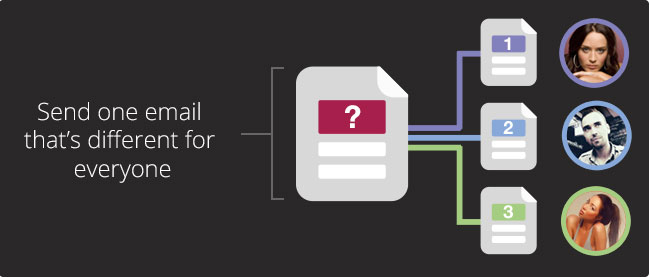
By Bill Binch, ANZ MD at Sydney-based global marketing software provider Marketo: In a busy, bustling online world full of texts, snaps, pings and chats, marketers and ad agencies need to be strategic when developing email content that will break through the noise and resonate with their target audiences.
To stand out from the 215.3 billion emails sent in 2016 alone, content needs to be engaging and dynamic. Dynamic emails are an effective way of connecting on a personal level to thousands of subscribers.
While these emails offer a personalised experience for each subscriber, they also allow marketers and advertisers to interact with them on a one-to-one messaging basis through an automated marketing platform.
Most importantly, people who buy products marketed through email spend 138% more than people who do not receive email offers, highlighting how effectively personalising subscribers’ email experiences can significantly impact a business’ bottom line.
To revive your marketing campaign, follow these six steps to send out creative, engaging and personalised dynamic emails:
1. Gather important data through dynamic surveys: Conducting a survey is a highly effective way of gathering customer information. This can be information regarding their expectations, challenges, or needs. With instant feedback from customers, products and campaigns can be optimised on the fly. This ensures every resource, message, and investment is implemented in ways that create the most meaningful and valuable impact as customers’ preferences and demands evolve.
2. Increase urgency with deadline countdowns: Including a countdown clock in a live email can create a sense of urgency, and ensure that email stands out from the crowd while instantly capturing subscribers’ attention. Timely events, such as Christmas or half-year sales, are easy trends to leverage. However, creating a timeframe specifically for a campaign, discount, or bonus offer (eg, available for the first 500 subscribers, or free for only 24 hours) can provide the freedom to adjust sales and marketing campaigns to marketers’ preferred schedules.
3. Incorporate convenience features and special effects: Convenience is vital for customer satisfaction. Features that allow customers to send a direct message to customer service, or buttons that enable simple actions such as adding events to a calendar can improve satisfaction and engagement levels.
Similarly, adding special features can further engage readers’ attention. Simple actions that are not usually present in stale and regular emails such as scrolling, zooming, fading, and image animations can help differentiate your email from the competition.
4. Use videos: Watching short videos on smartphones is one of the main entertainment sources forAustralian consumers. As one of the more captivating and memorable communications channels available today, video is now also consumable at every stage of consumers’ daily routines – at breakfast, on the train, at work, and even in the bathroom. Take advantage of the potential timeliness that videos can introduce by reaching target audiences at the most appropriate time in their day and decision- making cycle.
5. Device and Geo-Targeting: Identifying subscribers’ geo-locations, which can be as easy as asking for their post codes when they sign up, can enable marketers to reach a new level of personalisation. They can localise subject lines, deploy emails based on time zones and send location-specific emails to specific readers. Localisation can increase open rates by up to 25%, meaning heightened interest and engagement.
6. Social Feeds: With more than 15 million social media users in Australia, there is a clear opportunity to use emails to drive social media engagement. To stay ahead of competitors, embed real-time feeds to Twitter, Facebook, Instagram and other social media channels to provide avenues for multi-channel engagement.
As the way businesses and consumers continue to evolve the way they use, create, and send emails, it is critical for marketers to stay ahead of the latest trends and technologies that will enable them to deliver the strongest impact and ROI.
Today, these kinds of simple edits to create dynamic emails should be the first steps marketers take to creating hyper-personalised email strategies that drive measurable improvements to a business’ bottom line.
Share this Post


